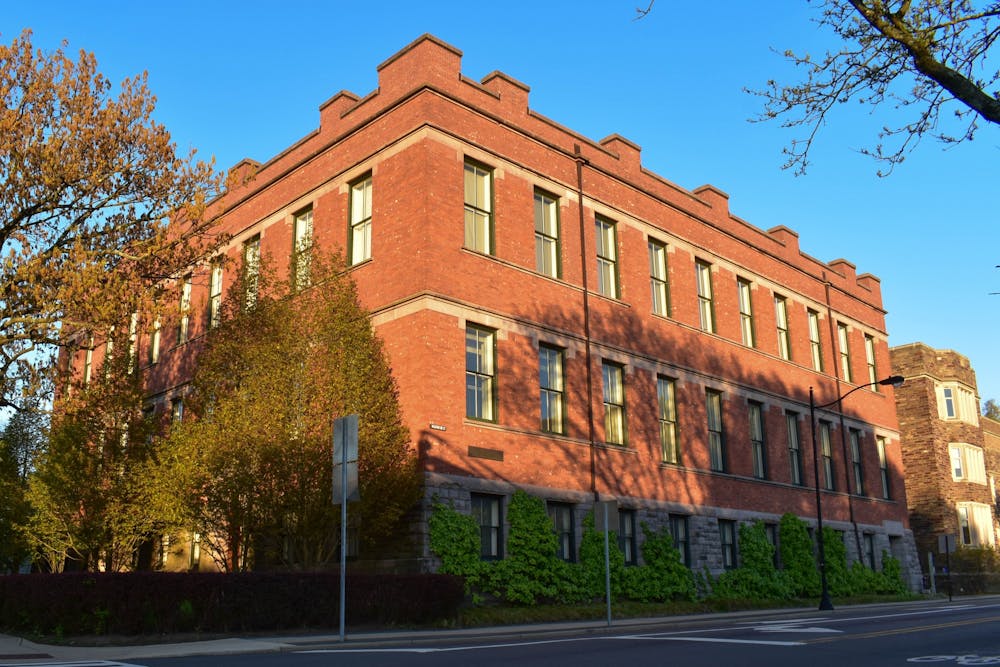In a statement to The Daily Princetonian on Tuesday, University Spokesperson Ben Chang wrote that the University apologizes for “contributing to the pain experienced by the Africa family.”
“As President Eisgruber has said, ‘This nation’s long legacy of racism continues to damage and destroy the lives of Black people.’” Chang wrote in the statement. “We recognize the bombing of the MOVE house and its aftermath are part of that legacy.”
Both Princeton and the University of Pennsylvania have been the center of controversy since last Wednesday, when local Philadelphia newspaper BillyPenn together with an opinion piece in the Philadelphia Inquirer revealed that the remains of children who were victims of the 1985 MOVE police bombings sat in Penn Museum for decades, in the custody of Professor Emeritus of Anthropology Alan Mann and former visiting professor Janet Monge, current curator of Penn Museum’s physical anthropology section.
The reports also revealed that Monge used the remains in a public online forensics course offered by Princeton entitled, “Real Bones: Adventures in Forensic Anthropology.” Princeton suspended the course on Friday and it is no longer available for viewing. Faculty members at Princeton have referred to the handling of the remains and their use in the online course as “exploitation” and “an ethical violation.”
In May of 1985, Philadelphia police dropped a bomb from a helicopter on the rowhouse where members of the communal group MOVE lived. The bomb started a fire and police ordered firefighters to let it burn. Eleven people, including five children, were killed, and over 60 houses were destroyed.
According to a Penn Museum spokesperson, the remains were given to Mann, then a Professor at the University of Pennsylvania, for examination. They have been in his and Monge’s custody for 36 years.
Mann was a Professor of Anthropology at the University of Pennsylvania at the time he acquired the remains and became a professor at Princeton in 2001. Princeton’s statement to the ‘Prince’ indicated that the remains are not currently and have never been stored at Princeton. Chang noted that Mann “retired in 2015 and Professor Monge is no longer affiliated with the University.”

The statement from Princeton follows a similar statement from Penn Museum published Monday. In the statement they apologized “to the Africa family and to our community for allowing human remains recovered from the MOVE house to be used for research and teaching, and for retaining the remains for far too long.”
Penn Museum also wrote that it is “working now to find a respectful, consultative resolution.” Chang wrote in the Tuesday statement that “the University fully supports the process the Penn Museum is undertaking to find a respectful resolution regarding the return of the remains to the family.”
Princeton Dean of Anthropology Carolyn Rouse received additional backlash for her comments in The Philadelphia Inquirer responding to scrutiny leveled at the University. Professor of African American Studies Ruha Benjamin tweeted that she was disappointed by the institutional response.
“This is no controversy. This is a problem to be solved,” Rouse said in an interview with the Inquirer on Wednesday. “There’s no racism. This was a forensic investigation and nobody came to claim the remains.”

In a letter written to the Association of Black Anthropologists’ and obtained by the ‘Prince,‘ Rouse apologized “that I offended folks with my words.”
“Ethical concerns around the handling and proper repatriation of any human remains matters to me,” she wrote. “This story about Alan Mann took me completely off guard. Given this, I should have done more listening and less talking.”
“I still stand by my statement that my department is not racist, but I should have done more due diligence to determine the chain of custody of those remains,” she added.
To Judith Weisenfeld, Professor of Religion and Chair of the department, the initial focus on whether or not the remains were on campus or that whether nothing improper was “currently” happening at the University was too narrow a scope at which to look at the revelations.
“Penn and Princeton are connected in obligation to explain how these remains were used in this [online] course,” Weisenfeld said in an interview with the ‘Prince.’ “Where are these remains now?”
Weisenfeld joined a number of University faculty members Monday in signing an op-ed urging the University to apologize for Monge’s use of the remains in the online course and investigate “whether the remains were used within courses or for independent research at Princeton and the findings should be made public.”
The University’s anthropology department also released a statement acknowledging its “complicity” in the history of anthropology’s use for racist and white supremacist ends.
“We, as a department, acknowledge our complicity in this history and are committed to working against elements of the anthropological approaches that facilitate, perpetuate or reiterate the racist and harmful practices relating to human bodies, lives and experiences,” they wrote. “We recognize that we have a long way to go toward ensuring that anthropology bends towards justice.”
Ahmad Greene-Hayes, a Ph.D. candidate in the Department of Religion, said that the statements from both Universities were “a step of what we might think of as the right direction” but emphasized that more needed to be done.
“They are not the end-all-be-all of these issues especially because we do not have a full accounting of what happened to these remains,” Greene-Hayes said.
Greene-Hayes also pointed to the demands of the MOVE organization itself, which released a public petition with five demands: that the remains are returned to MOVE, that a full investigation is conducted of Princeton and the University of Pennsylvania with regards to their “unethical possession” of the remains, that the University of Pennsylvania fire Monge, that both universities formally apologize, and that both institutions give “reparations for these atrocities.”
This article is breaking and will be updated as more information becomes available.








